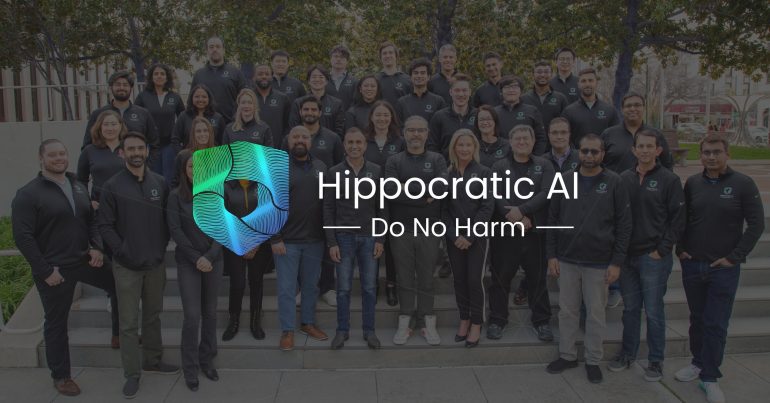- Hippocratic AI introduces beta testing for revolutionary AI healthcare solution.
- The platform utilizes a specialized Large Language Model tailored for healthcare contexts.
- Over 40 health systems and digital health companies, including Memorial Hermann Health System and the University of Vermont Health Network, are evaluating its capabilities.
- The AI has surpassed GPT-4 in over 100 healthcare certifications due to its healthcare-specific training and reinforcement learning with human feedback (RLHF).
- Beta testing focuses on voice-based, patient-facing applications, prioritizing safety and efficacy.
- Key evaluation areas include chronic care management, post-discharge follow-up, wellness surveys, and pre-operative communication.
- Frontline healthcare professionals lead the testing process, assessing the AI’s conversational ability, medical accuracy, script adherence, empathy, and listening skills.
- Beta testing partners have access to performance data for evaluation and feedback resolution.
Main AI News:
Hippocratic AI has initiated beta testing for what it asserts as the globe’s premier generative artificial intelligence (AI)-empowered ‘healthcare provider’. The platform is constructed on a safety-centric Large Language Model (LLM) specifically crafted for healthcare contexts. Over 40 health systems and digital health firms, including Memorial Hermann Health System and the University of Vermont Health Network, are currently assessing its capabilities.
The company’s LLM has already outpaced GPT-4 in more than 100 healthcare certifications, a milestone attributed to its healthcare-tailored lexicon training and the integration of reinforcement learning with human feedback (RLHF) from healthcare practitioners. This beta testing phase concentrates on voice-driven, patient-facing, non-diagnostic applications, prioritizing safety and efficacy ahead of a full-scale release.
The beta testing consortium has pinpointed several pivotal domains for initial scrutiny, encompassing chronic care management and post-discharge follow-up for ailments like congestive heart failure and kidney disease. Additionally, the evaluation extends to wellness assessments, health risk profiling, and pre-operative communication. The primary objective is to validate the precision and safety of the AI’s performance in these critical healthcare processes.
Frontline healthcare personnel, comprising physicians and nurses, lead the testing efforts across participating entities. Their evaluation criteria span the AI’s conversational fluency, medical accuracy, adherence to scripts, empathy quotient, and attentiveness.
Partners in the beta testing program will gain access to comprehensive performance metrics, including evaluation duration, specific issues identified, and feedback resolution strategies. Feby Abraham, Executive Vice President and Chief Strategy and Innovation Officer at Memorial Hermann, commented, “We see potential in this technology to mitigate workforce shortages by assuming routine tasks, such as reaching out to patients for pre-operative instructions or conducting post-discharge follow-ups. Amidst the unique challenges of recent times, there’s a heightened urgency for innovation in this realm, and we are committed to exploring novel avenues to support and engage our staff effectively.”
Conclusion:
The introduction of Hippocratic AI’s innovative healthcare platform into beta testing signifies a significant step forward in the intersection of artificial intelligence and healthcare delivery. The emphasis on safety, efficacy, and tailored healthcare-specific training underscores the potential for AI to enhance patient care and alleviate workforce shortages. As the platform undergoes rigorous testing and evaluation, it sets a precedent for future AI-driven healthcare solutions, indicating a promising trajectory for innovation in the healthcare market.

